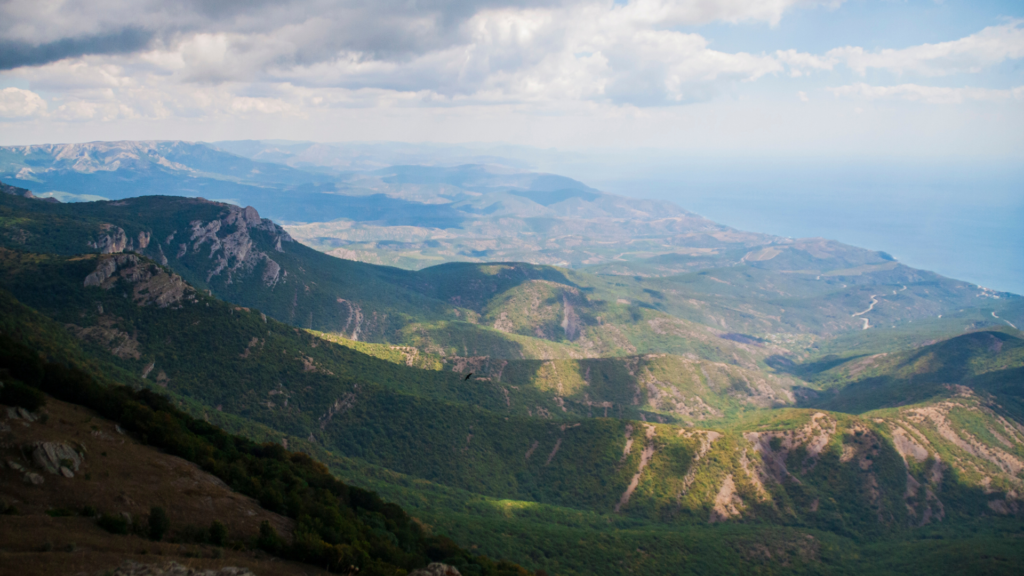By Dr Mariana Melnykovych (Bern University of Applied Sciences)
The 7th Forum Carpaticum, themed “Carpathian Futures – Critical Transitions,” took place in Krakow, Poland, from the 25th to 28th of September 2023. The forum provided a platform for scientists, practitioners, and stakeholders to discuss the multifaceted challenges faced in the Carpathian Mountain region. Held biennially, this conference embraces an interdisciplinary and transdisciplinary approach, promoting sustainable and eco-friendly solutions for the Carpathians and other mountain regions. One of its primary objectives in 2023 was to foster knowledge exchange and collaboration among diverse stakeholders, addressing pressing transitions.
The Forum Capraticum this year delved into a myriad of topics indicative of the challenges in the Carpathian region. These topics spanned from conservation and sustainable biodiversity utilisation to water resource management, natural hazards, climate change, and integrated landscape management. Additionally, a strong emphasis was given on cultural heritage, traditional knowledge, and the harmony between humans and wildlife. Discussions also touched on land use alterations, sustainable tourism, education geared towards sustainable development, and forest governance.
Our Experience: MARGISTAR at the Forum Carpaticum 2023
MARGISTAR was represented by Dr Mariana Melnykovych, who delivered a presentation entitled “Multi-disciplinary Approach for Inclusive, Competitive, and Green Economies and Societies in Mountainous Areas: The Experience of EU COST Action MARGISTAR.” This highlighted the significance of a comprehensive approach in ensuring inclusive and sustainable economic progress in mountain regions, underscoring the balance between competitiveness and environmental preservation.
With the UN Carpathian Convention office, Dr Melnykovych also participated in a session to discuss the repercussions of the war in Ukraine on the Carpathian Mountains. This session sought to convey a message to the COP7 of the UN Carpathian Convention, emphasising the strain on the environmental capacity of the Ukrainian Carpathian due to the influx of internally displaced people and the shift of businesses from eastern to western Ukraine. These factors, combined with the escalating effects of climate change, are posing considerable challenges to the region’s unique landscapes. There is an evident need for cooperative initiatives on sustainable nature governance, wildfire management, biodiversity preservation, circular economy, and socio-ecological innovations.
Throughout the Forum Carpaticum event, a series of academic sessions, dialogues, workshops, and keynote lectures facilitated the sharing of practical examples and case studies within the Science for the Carpathians network. The focus remained on the urgent and multifaceted challenges in the Carpathians, aiming to enhance resilience, innovation, and sustainability amidst these critical transitions.
The conference served as an essential avenue for attendees to exchange research findings, experiences, and insights. It cultivated a spirit of collaboration for the sustainable advancement of the Carpathian region and beyond. This set the stage for subsequent discussions at the high-level meeting of delegates from the seven Central and Eastern European countries party to the Carpathian Convention: Romania, Poland, Slovakia, Ukraine, Czech Republic, Hungary, and Serbia. These discussions centred on how to achieve Carpathian Vision 2050, by which “the Carpathians is a thriving and sustainable region where people live in harmony with nature. The biodiversity and natural beauty of the Carpathians are conserved, restored, and wisely used, providing a healthy environment and essential ecosystems services for all people of the region and beyond.”
Introducing the Carpathian Mountains
The Carpathian Mountains are of specific interest to MARGISTAR due to their unique combination of natural, social, and economic attributes. Spanning multiple Central and Eastern European countries, the Carpathians are one of Europe’s most extensive mountain ranges, harbouring a wealth of biodiversity and many endemic species. From an ecological perspective, they play a crucial role in preserving Europe’s wilderness areas and act as significant carbon sinks.

Socio-economically, the Carpathians encompass a diverse tapestry of cultures, languages, and historical narratives, but many communities in the region grapple with challenges linked to isolation, limited infrastructure, and economic marginalisation. This juxtaposition of rich biodiversity with socio-economic challenges makes the Carpathians a living laboratory for researchers interested in marginalised mountainous areas and pathways to a more sustainable future, both economically and environmentally. The region offers invaluable insights into sustainable development, biodiversity conservation, and the interplay between human communities and their environments in marginalised mountainous contexts.

Additional information can be found at the following links:


